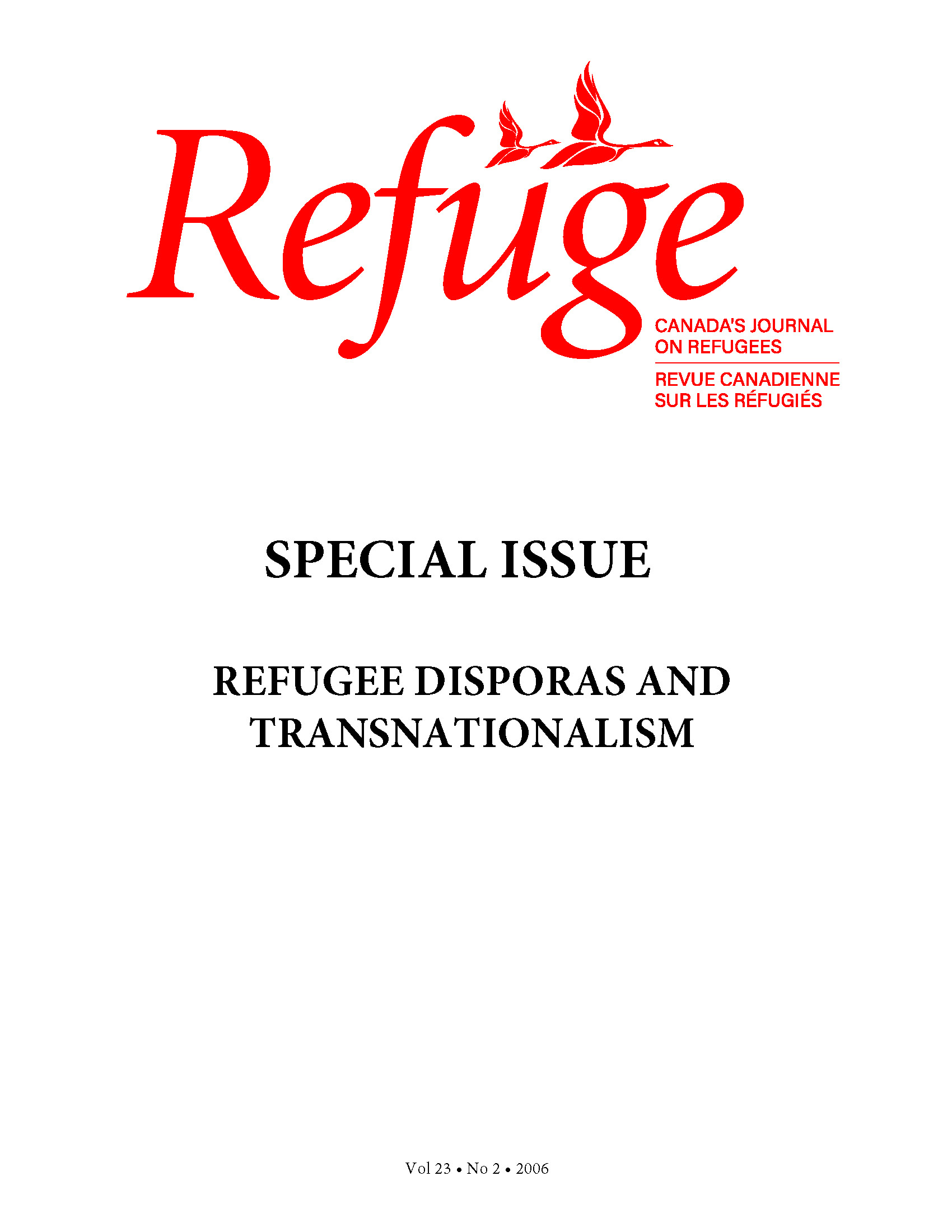The Triad of Transnationalism, Legal Recognition, and Local Community: Shaping Political Space for the Burmese Refugees in Japan
DOI:
https://doi.org/10.25071/1920-7336.21353Keywords:
Japan, Burmese refugees, transnationalism, legal status, refugee status, community, politicsAbstract
Refugee participation in transnational acts – from advocating for regime change in home countries to strengthening modes of safe passage for friends and family to host countries – is only as effective as the ability of refugees to organize, collaborate with one another, and develop strong communication links between communities in the home and host countries. While many assume that legal status improves the ability of refugees to engage in political transformation, research on the Burmese refugees living in Japan reveals that the application and provision of legal status can have the opposite effect, weakening fragile community structures, stemming advocacy efforts, and discouraging communication between divided political and ethnic groups. I argue that transnational acts form a three-way relationship with legal recognition and local community, and that, because of conflictual relationships among local refugee communities, refugees from Burma with higher degrees of legal recognition in Japan do not necessarily expand transnational space.Metrics
Downloads
Published
How to Cite
Issue
Section
License
Copyright (c) 2006 Susan Banki

This work is licensed under a Creative Commons Attribution-NonCommercial 4.0 International License.
Refuge authors retain the copyright over their work, and license it to the general public under the Creative Commons Attribution-Non Commercial License International (CC BY-NC 4.0). This license allows for non-commercial use, reproduction and adaption of the material in any medium or format, with proper attribution. For general information on Creative Commons licences, visit the Creative Commons site. For the CC BY-NC 4.0 license, review the human readable summary.







